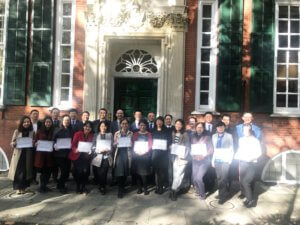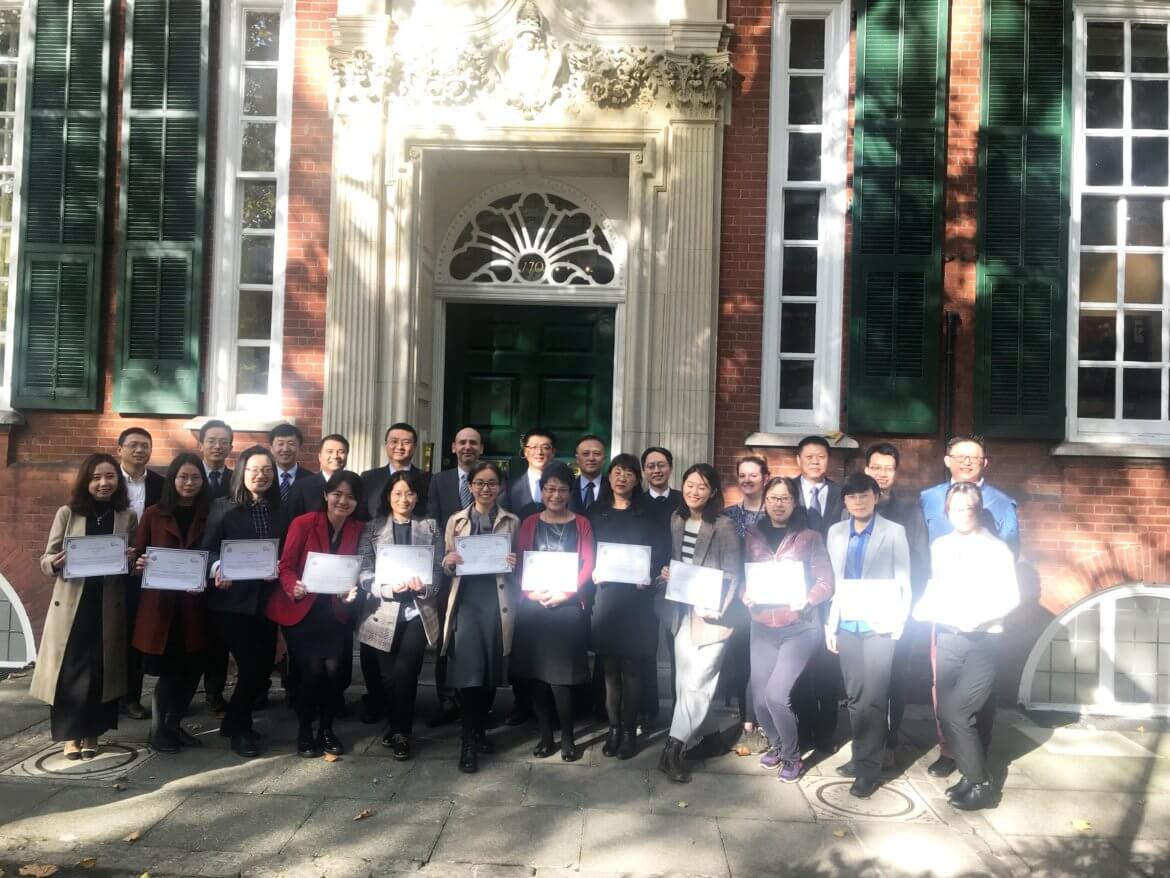Health policy evaluation and Health Technology Assessment in the UK were put under the spotlight during a two-week study tour for Chinese officials, hosted by iDSI, which concluded today.
The 22 delegates, from both clinical and non-clinical backgrounds, visited London and Cambridge to develop their understanding of the UK healthcare system, including health-related legislation and regulatory mechanisms, policy development and health reforms.
Along with visits to St Thomas’ Hospital, Boots Pharmacy’s corporate office and AstraZeneca, the group received talks on the role and function of National Institute for Health and Care Excellence and the Medicines and Healthcare Products Regulatory Agency in protecting and improving public health; the pricing of branded and generic pharmaceuticals in the UK; vaccine evaluation; the development of evidence-based clinical pathways and integrated care pathways; and how to best to make use of electronic health record systems.

Members of the delegation from China with iDSI staff in Queen’s Gate
Yu Ou’yang from the Division of Medical Administration within the Hunan Provincial Health Commission in China said: “Over the last two weeks we have had presentations from almost 30 experts, even though the context of the UK and China is very different there has been so much for us to learn here. During the study tour I have realised healthcare management and delivery in the UK is very detailed and precise to ensure all goes as smoothly as possible, the UK also takes into account the balance between cost and effectiveness in healthcare which is extremely important. It has been great to learn more about standardised operations such as Clinical Commissioning Groups and NICE and their responsibilities. I would like to extend my thanks to all the presenters and those that facilitated our practical days.”
Ying Peng, who is based in Beijing but also carrying out a PhD in Health Economics at the University of Sheffield, said: “The range of presentations we received will really help my own PhD studies, I’ve definitely developed my understanding of how new interventions are appraised in the UK and how evidence is the pinnacle of decision-making. It was really important for me to learn more about the UK health system, which organisations underpin it and how this could be adapted for China.”
The group was made up of officials from iDSI core partner the China National Health and Development Research Center (CNHDRC) and the Chinese Ministry of Health (National Health Commission); along with policy makers and academics from Huazong, Beijing and Shanghai universities.
Liu Jianan, from the Division of the Essential Medicines List, within China’s National Health Commission, said: “Our delegation is diverse but between us all we have rich experience and knowledge. Our learning over the last two weeks has been delivered in such a systematic way; there is still much more we can learn from the UK healthcare system however for now I am pleased we will all be able to bring back our experiences from this trip, especially for matters such as pricing for medicines, which is of broad and current interest in China.”
Chen Bo, a PhD student from Peking University’s School of Public Health, said: “I feel very lucky to be here. The talks have inspired me a lot, particularly as my current area of study is public hospital reform at county-level in China. For me the most valuable part of the study tour has been expanding my knowledge of the ways in which hospital reforms could be made more efficient; and learning so much about Cost Effective Analysis exercises and ways we could push forward with this in China.”
Francis Ruiz, iDSI Senior Advisor, said: “The Global Health & Development Team at Imperial and iDSI have been delighted to organise study tours to the UK for senior Chinese officials since 2014. The talks from various presenters, including representatives from The Nuffield Trust, NHS England, NHS Benchmarking and feedback on their own workstreams from the delegates themselves has been a fantastic complement to off-site days where the group observed the delivery of health care first-hand and attended a workshop focused on primary care. We hope the visit was valuable and will have positive impact on them as individuals; and help develop the UK-China partnership in Health Technology Assessment.”
